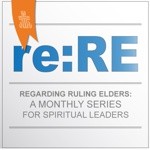“You abandon the commandment of God and hold to human tradition” (Mk. 7:8)
I was stunned by these words of Jesus as I was listening to a reading of Mark 7:1–8 recently. He could be speaking to us today.
In all our conversations about how the church needs to change, I have longed for a simpler, biblical/theological word. And right now, this is it for me. It feels grounded and sure.
What I hear from these words of Jesus is an admonition to cleave to God’s commandments, specifically the two greatest commandments—that of loving God with all our heart, soul, mind, and strength, and loving our neighbors as ourselves—over and above human tradition.
There is nothing inherently bad about human tradition, by any means. Much of our worship, the use of Robert’s Rules of Order, how we define our ministries, the circles with which we engage as churches: they are all based on customs and practices that have evolved over time, sometimes over centuries.
But what would it look like to hold a little more loosely to our human traditions, our familiar and comfortable ways of doing things, and intentionally open ourselves more to God, to each other, and to our neighbors (outside our accustomed circles)?
I heard the true story of a church in the Midwest. It was struggling and, like many churches, it had seen better days. It was an anxious congregation, and the elders didn’t see themselves as spiritual leaders, but more as administrators and program directors. They were afraid to risk, and feared failure.
Their new pastor prayed for them, and as she prayed for them, she realized she wanted them to know the abundant wellspring of the presence of God in their lives. She began to work with the elders, studying and praying through Scripture together, asking “how do we open more to the abundance of God?” The elders also made a covenant to be in worship regularly, to pray for people in the congregation, and to simply say grace before all their meals at home.
Every session meeting included a beautiful centerpiece with a bowl of water. They lit a candle reminding them of God’s presence, and would dip their fingers in the bowl as a way of remembering their baptisms. One person would then share something of his or her own faith journey.
They began to understand each other better, pray for one another, and there was unity at deeper levels. They began to confess to one another, and started doing things through discernment (listening to the Spirit of God) rather than decision-making.
Then they began to reach out into the community, especially to mentor at-risk kids in the neighborhood. And then they realized that these children not only needed tutoring, but needed job skills, too, and they started an apprenticeship program.
One elder who had been a member of that church for almost his whole life, said, with tears in his eyes, “I never knew there was so much more.”
There was no strategic plan for growth, no dazzling program, only lots of prayer and faithfulness, risk and courage. The church may or may not have grown in size, but they were experiencing the abundant love of Jesus Christ—and sharing it with their part of the world.
- Where in your church do you observe human traditions that are life-giving?
- Where in your church do you see human traditions that seem to drain everyone’s energy? What would it look like to let them go?
- What do you long for in your own relationship with God?
- What needs and desires do you see in your fellow elders and among your church members?
- What needs are you seeing in your community outside the church? How could the church attend to those needs, or serve in a new way?
"Should the threats of dire predictions cause us to withdraw in pain,
may your blazing phoenix spirit resurrect the church again.
God of rainbow, fiery pillar, leading where the eagles soar,
we your people, ours the journey now and forever and ever, now and ever, now and evermore."
From "In the Midst of New Dimensions" (Glory to God #315)
by Julian Rush
God’s blessings on you and your church as together we seek to love and serve our God in Jesus Christ, and our neighbors as ourselves, with adventurous, faithful, overflowing hearts. Amen.
The Reverend Dr. Diana Nishita Cheifetz is a spiritual director, serving lay leaders and clergy in the San Francisco Bay area, the U.S.A., and internationally. Her website is www.spiritualdirectionforpastors.com.

